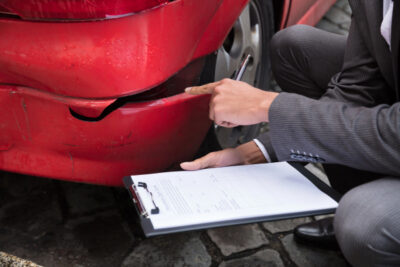
Punitive damages are not something most people think about after a car crash. But in some cases, they matter a lot. These damages can be added to your claim if the other driver acted in a very reckless or harmful way.
Good Guys Injury Law helps car accident victims understand every type of compensation they can claim. If you’ve been hurt and the other driver acted on purpose or showed no care for your safety, you may be able to seek punitive damages in addition to what you’ve already lost. These aren’t just about medical bills or lost wages; they’re about holding someone fully accountable.
Table of Contents
What Are Punitive Damages Under the Civil Law?
Punitive damages are extra money awarded in some personal injury lawsuits. They are not given for medical treatment or to replace lost wages. Instead, they are meant to punish the wrongdoer.
In a car accident lawsuit, a court may award punitive damages if the defendant’s conduct was extremely careless, intentional, or dangerous. These are also called “exemplary damages” because they aim to make an example of the person who caused harm.
Purpose of Punitive Damages
The main goal is to punish and prevent. Punitive damages are used to punish someone for bad behavior and to warn others not to do the same. When a driver acts with gross negligence or willful harm, these damages tell the public that such behavior is not okay.
Punitive damages are not part of regular compensation. They are used in special cases to address wrongs that go beyond a typical car accident.
Not Meant to Cover Medical Bills or Lost Wages
Punitive damages are not designed to pay for your hospital bills or lost income. Those are covered by compensatory damages. Instead, punitive damages go beyond the harm done. They focus only on punishing the behavior of the person who caused the crash.
So, if you’re asking whether you can use these damages to pay for treatment or repair your car, the answer is no. They are separate from car accident claims and focused on recovery.
When Can Punitive Damages Be Awarded in a Car Accident Case?

Not every accident leads to a punitive damages award. You must prove more than a simple mistake. Regular negligence is not enough.
To seek punitive damages, the car accident plaintiff must show that the other driver acted with more than carelessness. Their actions must involve intentional harm, fraud, or extreme recklessness.
Common Scenarios That May Qualify
- Drunk driving: Driving under the influence often qualifies as gross negligence.
- Street racing: If someone causes a crash while racing, their conduct may be punished.
- Intentional collisions: A crash caused on purpose (like road rage) may lead to an award.
- Repeated violations: If the driver has a history of reckless driving, it strengthens your case.
State Laws Vary on Eligibility and Limits
Each state has different rules about when and how much you can get. Some states put a cap on how large the punitive damages award can be. Others require certain levels of proof. If you’re in Utah, a personal injury attorney can explain what the law allows and whether your case meets the standards.
How Are Punitive Damages Calculated?
Punitive damages are not random. The amount often depends on how serious the defendant’s conduct was. If the driver showed extreme disregard for the safety of others, the court may order a higher amount.
For example, if someone was speeding and texting, that’s bad. But if they were drunk, speeding, and had a history of DUI arrests, that’s worse. The more dangerous the behavior, the higher the possible punitive damages.
Depends on the Defendant’s Financial Status
Courts also look at how much money the defendant has. If someone is wealthy, a small amount won’t really punish them. So, the award may be higher to make an impact.
Punitive damages are meant to hurt the wrongdoer financially. That’s why a judge or jury may consider income, assets, or overall financial health.
Ratio to Compensatory Damages
There is often a rule about how much punitive damages can be compared to regular damages. This is called a “ratio.” Some courts don’t allow punitive damages to be more than 10 times the amount of compensatory damages.
For example, if you received $50,000 for your injuries and losses, the punitive damages might be capped at $500,000. A personal injury lawyer can explain how this ratio applies in your case.
What Do You Need to Prove to Get Punitive Damages?

Clear and Convincing Evidence Standard
To win punitive damages, you must meet a higher standard of proof. It’s not just about “more likely than not.” It has to be clear and convincing. This means the judge or jury must strongly believe the defendant acted in an extreme way. It’s more than guessing or assuming; they need real, solid facts.
Proof of Intentional, Malicious, or Extremely Reckless Behavior
You need to show that the defendant’s actions were not just a mistake. They must have been done on purpose or with total disregard for others.
Driving drunk, fleeing the scene, or hitting someone in anger can all meet this standard. The key is showing that the driver made choices that any reasonable person would know are dangerous.
Evidence May Include
- Police reports – Show what happened at the scene.
- Witness statements – Back up your version of events.
- Dash cam or surveillance video – Offers proof of reckless driving or road rage.
- Prior offenses – Help show a pattern of bad behavior.
- Expert testimony – Can explain how the driver’s actions broke the law or safety rules.
Are Punitive Damages Taxable?
Yes. When you receive punitive damages after a car accident, you will likely have to pay taxes on that amount. The IRS considers most punitive damages as taxable income, even if they come from a personal injury case. This is very different from compensatory damages, which are often not taxed if they relate to physical injuries or medical treatment.
This means if the court awards you both types of damages, you’ll probably owe taxes on just the punitive portion. For example, if you win $100,000 in total and $30,000 is for punitive damages, the IRS will expect you to pay federal income taxes on that $30,000.
It’s important to speak with a tax professional or your personal injury lawyer to understand how this applies to your situation. A mistake could lead to tax penalties or issues with the Internal Revenue Service later on.
FAQs
Can I get punitive damages after any car accident?
No. Punitive damages are not available in every motor vehicle accident case. You must prove that the other driver acted with willful and conscious disregard for others’ safety. Ordinary negligence, like not checking a blind spot, is usually not enough. Courts only consider these damages in cases involving extreme or reckless behavior.
What’s the difference between compensatory and punitive damages?
Compensatory and punitive damages serve different purposes. Compensatory damages cover your actual losses, like medical bills or car repairs. Punitive damages are meant to punish the wrongdoer and stop them or others from repeating the same actions. You must have compensatory damages first before a court will consider awarding punitive damages.
Is a car accident plaintiff entitled to punitive damages if the other driver was drunk?
Possibly. If a driver was intoxicated and caused serious car accident injuries, the court may view it as reckless enough to award punitive damages. In these cases, you must show more than just poor judgment; you need to prove the driver showed willful and conscious disregard for your safety.
Do I need an experienced personal injury attorney to seek punitive damages?
Yes. An experienced personal injury attorney can determine if your case qualifies. Proving a punitive damages claim requires strong evidence and careful legal steps. Skilled car accident attorneys know how to gather this evidence and present it in a way that shows the court why the other driver’s behavior was extreme.
Can I recover punitive damages if I have already received a settlement offer?
It depends. If your settlement only includes compensatory damages, you might still be able to seek punitive damages by filing a lawsuit, especially if the other driver’s actions were dangerous or intentional. But once you accept a full settlement, you may give up your right to ask for more.
Contact Our Utah Car Accident Lawyer Today

If you were hurt in a serious crash and believe the other driver acted recklessly, you may be able to seek punitive damages. These are not easy to win, but they can increase the total value of your case when the defendant’s conduct was extreme. That’s where we come in.
At Good Guys Injury Law, we know how to hold wrongdoers accountable. Our team builds strong cases and works hard to show the full impact of your car accident injuries, both physical and emotional. We can explain how compensatory and punitive damages apply to your situation and help you understand what your case might be worth.
Our car accident attorneys are here to fight for justice and fair compensation. You don’t have to go through this alone. Call us today for a free consultation with an experienced team that puts your recovery first.
